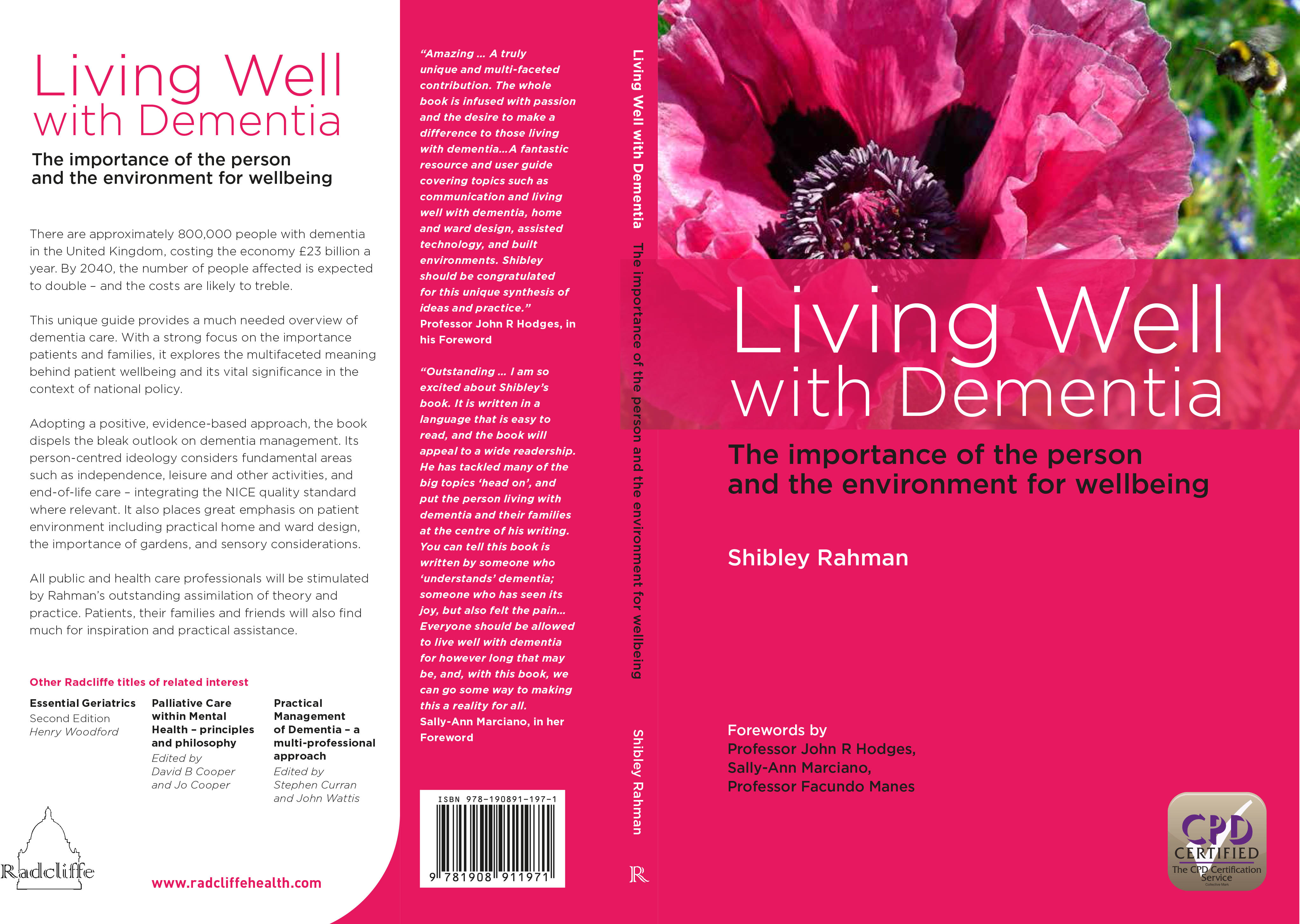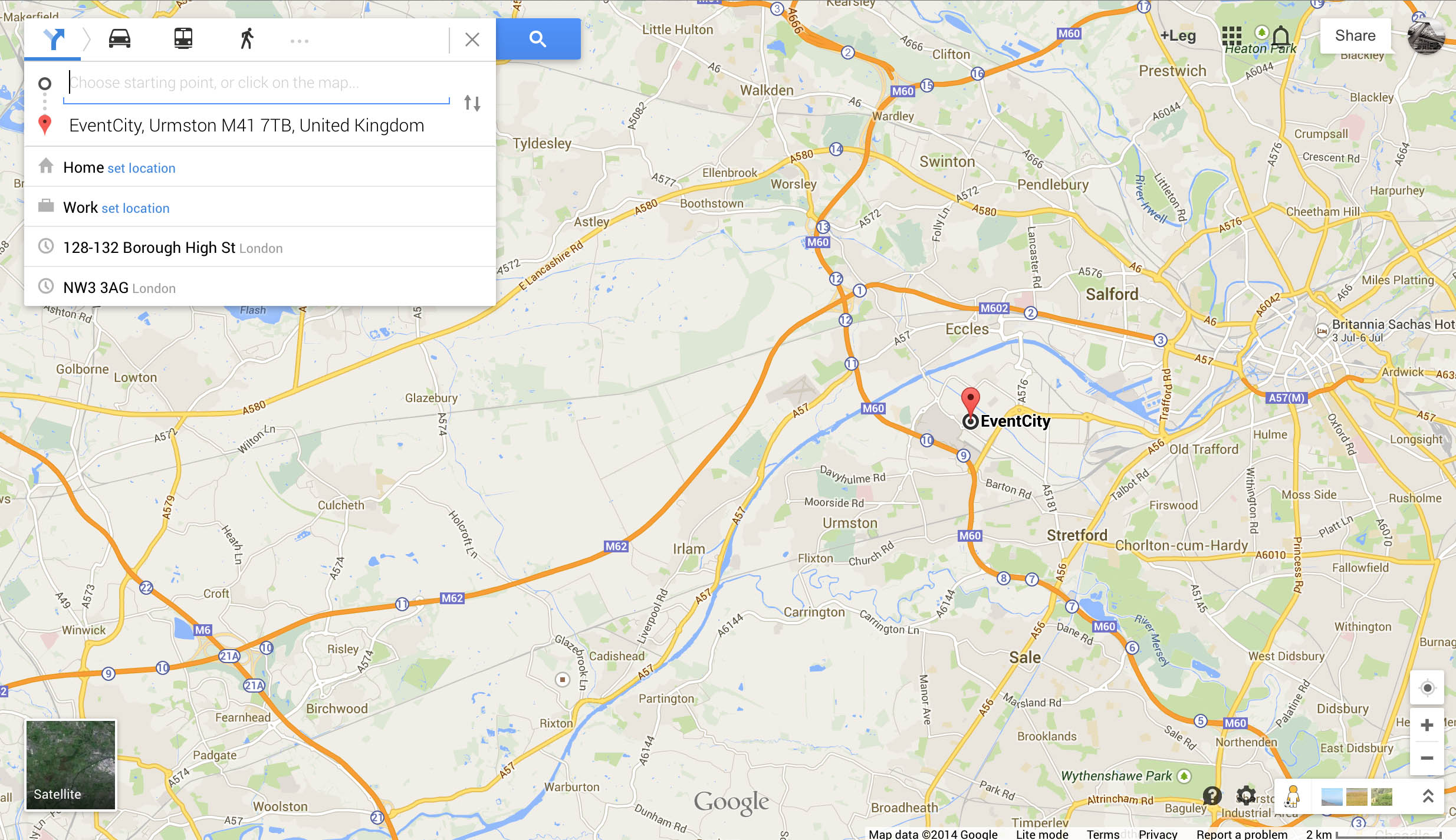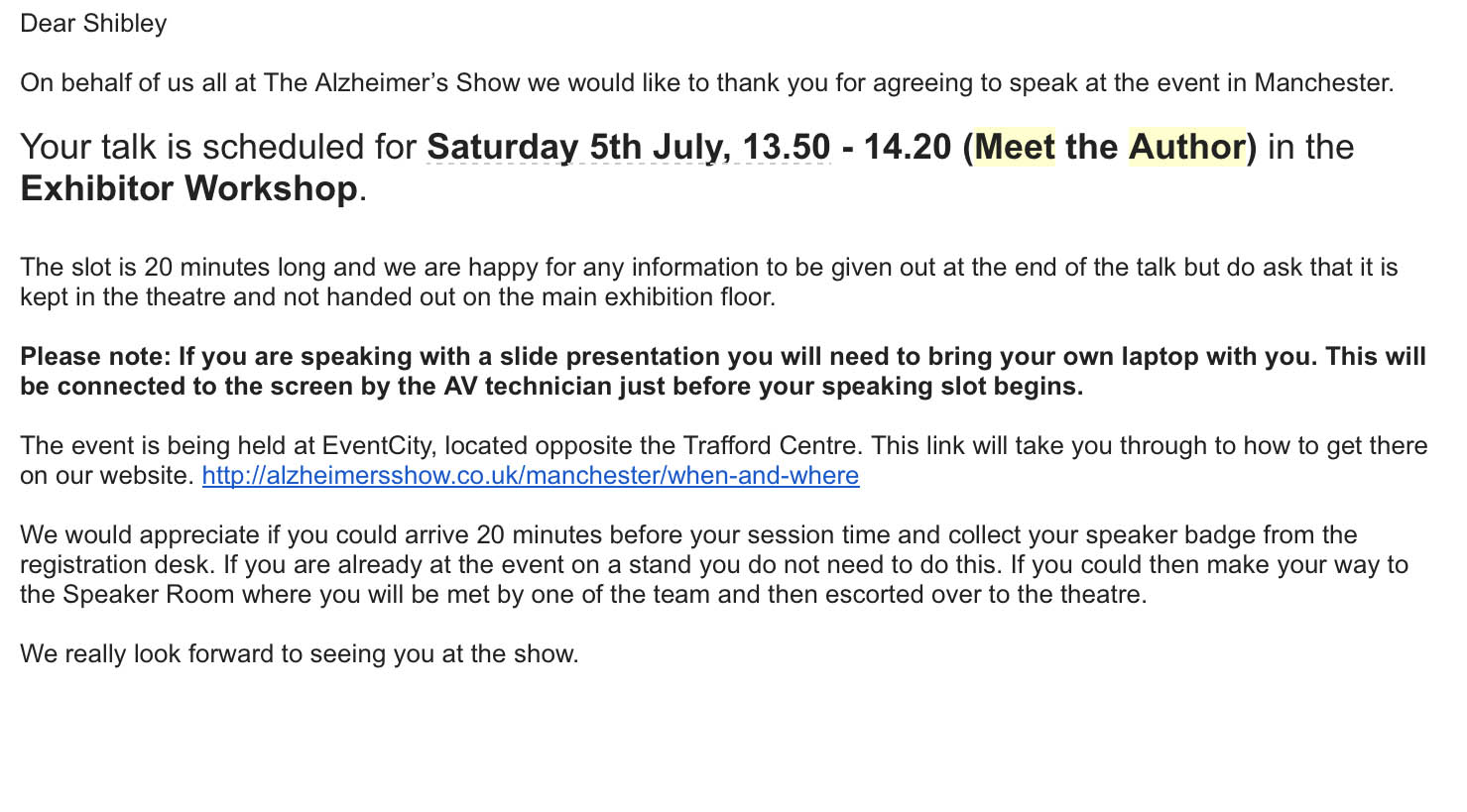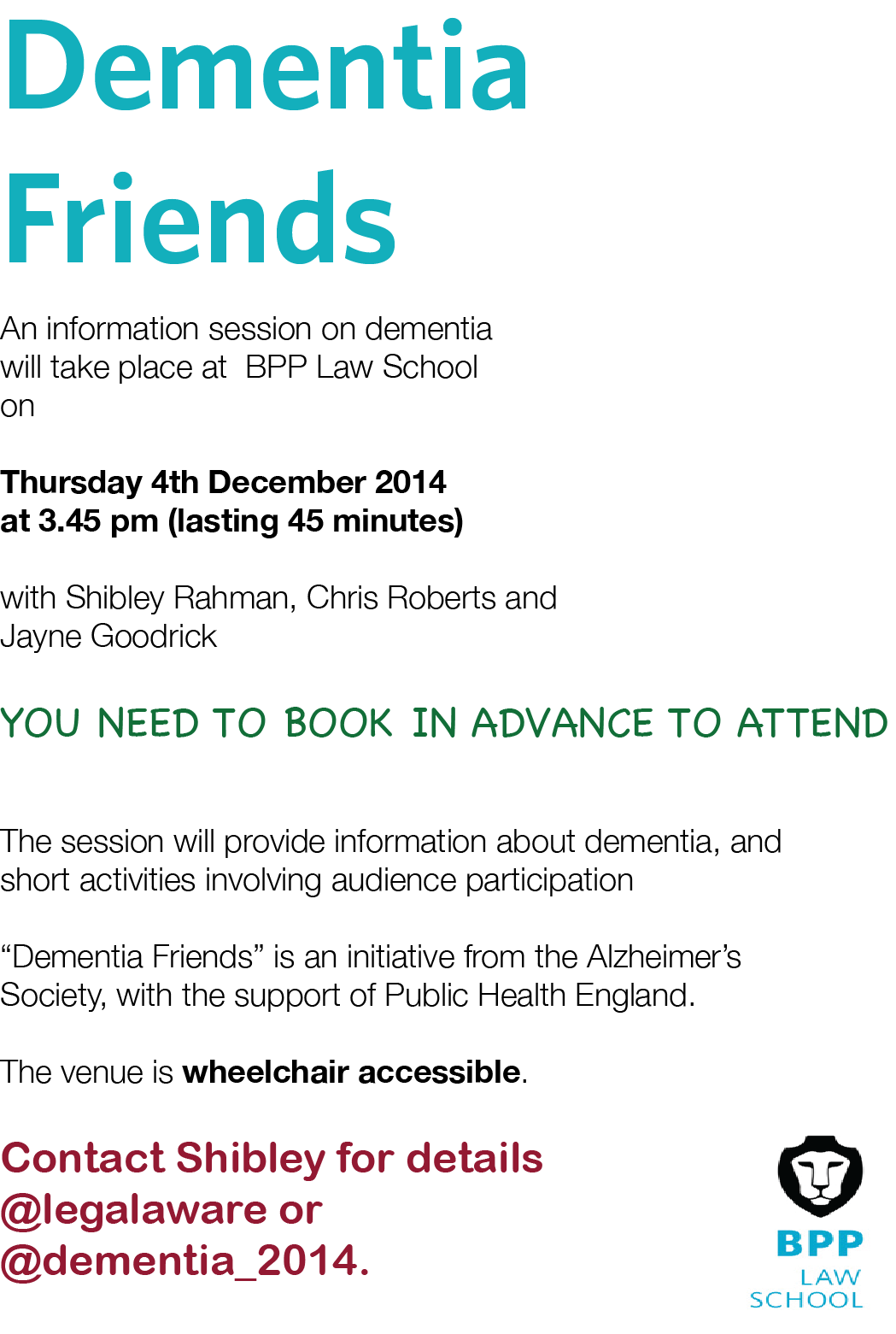I published a book earlier this year on “Living well with dementia”.
Since then, I have genuinely noticed a change in attitude in people in discussing dementia.
This for me is a major triumph. I wrote the book with a pile of research papers from various professorial laboratories from England and Scotland from the last few years, wondering how I could convey the gist of them in a short book.
Harry Potter it is not. It’s not “Fifty Shades of Grey”.
The book (details here) has been warmly received by people in carer and support networks, persons living well with dementia themselves, nursing students, and by members of the public.
I have no idea whether any medical professionals have read it, or commissioners, but they’d be precisely the group of people who could benefit from reading it as well?
I am genuinely really excited about doing my ‘Meet the author’ session on Saturday.
Friday 4th July 9.30am – 5.00pm
Saturday 5th July 9.30am – 4.30pm
MANCHESTER EventCity.
Venue: EventCity, Phoenix Way, Off Barton Dock Road, Urmston, Manchester, M41 7TB
Please do come and find me if attending! I can be easily direct messaged on my Twitter @legalaware 24/7 if you’re following me.
This is what you can do while there! at The Alzheimer’s Show Manchester:
- DISCOVER dementia and care exhibitors including care at home, care homes, living aids, funding, legal advice, respite care, training, telecare, assistive technology, charity, research, education, finance and entertainment
- MEET Admiral Nurses in free, confidential 1-2-1 clinics
- LISTEN TO high profile speakers covering a range of topics in the Alzheimer’s Matters Theatres
- PUT your questions to the experts in the daily ‘Question Time’ panel sessions
- HEAR personal experiences of caring for a person with dementia, join in the ‘Open Mic’ session and listen to a series of practical advice talks in The Alzheimer’s Talks & Topics Theatre
- MAKE USE of Community Integrated Care’s Quiet Area for carers to leave a person in the care of a qualified dementia specialist
- TAKE PART in the free Practical Workshop, sessions include music, singing, Tai Chi, creating dementia friendly environments and assistive technology
- FIND informative product and service talks in The Exhibitor Workshop
- BECOME a Dementia Friend and learn more about Dementia Friendly Communities
[source language=”<a”][/source]
My own PhD at Cambridge under Prof John Hodges was in the cognition of the behavioural variant frontotemporal dementia, so I am especially looking forward to Prof Stuart Pickering-Brown’s talk on the genetics of frontotemporal dementia.
Details of what is happening at the Alzheimer’s Show “Alzheimer’s Matter Theatre” are here.






